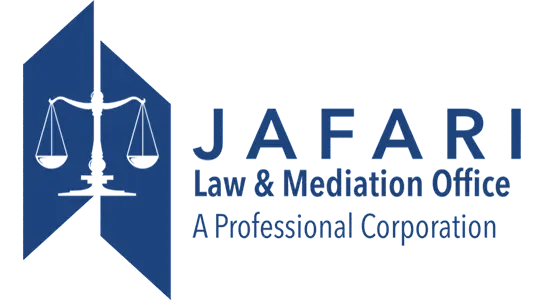Divorce is often an emotionally and legally complex process, especially when it involves disputes over finances, property, or child custody. One of the critical tools used in the discovery phase of divorce proceedings is a deposition. This guide will explain what depositions are, how they function in divorce cases, and the pros and cons of using them.
What Is a Deposition?
A deposition is a formal process where a party, witness, or expert gives sworn, out-of-court testimony as part of the discovery phase in a legal case. The testimony is recorded and can be used in court later. Depositions serve to gather information, clarify facts, and pin down the positions of the parties involved before trial.
In the context of divorce proceedings, depositions are typically used to obtain critical information directly from the opposing party as well as to gather statements from third-party witnesses, such as financial experts, child psychologists, or friends and family who may have relevant insights.
When Are Depositions Needed in Divorce?
Not every divorce case requires depositions, but they prove invaluable in contested situations, especially when one or both spouses are evasive or reluctant to disclose key information. This is particularly relevant when disputes involve the division of assets, spousal support, or sensitive child custody matters, such as accusations of parental unfitness.
Depositions are also effective in locking in testimony, ensuring that a party’s statements remain consistent and cannot be altered later. They help attorneys clarify vague responses, expose contradictions, and gather crucial insights into the opposing side’s stance. Additionally, the face-to-face format—whether in person or via video—enables attorneys to assess credibility through non-verbal cues like body language and tone.
Moreover, depositions often uncover new evidence, allowing attorneys to refine their legal strategies, better prepare for trial, and strengthen their negotiating position. By compelling truthful answers under oath, depositions cut through evasion and provide a clearer, more accurate picture of the facts.
Why are depositions so effective?
Most family law and divorce cases never reach a full trial where live testimony is taken. Due to the high volume of cases and limited court resources, family law judges typically rely on written declarations and the arguments made by attorneys or self-represented parties. These cases are often resolved through settlements, negotiations, or pre-trial motions.
While declarations are signed under penalty of perjury, they do not undergo the same scrutiny as live testimony, as they aren’t subject to cross-examination. This means that judges often make decisions based on assertions and written arguments rather than thoroughly tested evidence. The lack of live questioning can sometimes lead to rulings grounded more in one-sided narratives than in a comprehensive examination of the facts.
In contested divorce cases, depositions are invaluable because they allow attorneys to question the other party or witnesses under oath, in real time, with the flexibility to ask follow-up questions. Unlike written declarations, which only present one side’s perspective without immediate challenge, depositions expose inconsistencies and exaggerations more effectively. They provide a chance to uncover hidden motives or overlooked facts that a written statement might gloss over.
It’s important to note that early deposition testimony can be crucial. This is due to the fact that temporary rulings often become the final outcomes if a case never proceeds to trial. By revealing the truth sooner, depositions can significantly influence the direction and resolution of the case.
The Process of Conducting a Divorce Deposition
Depositions are highly structured and adhere to specific legal procedures. Here’s a breakdown of the process:
- Notice of Deposition: The party requesting the deposition serves a notice to the other party or witness with details on the time, date, and location. In California, depositions can occur in attorneys’ offices, court reporting offices, or any neutral location.
- Preparation: The party being deposed (the deponent) and their attorney should prepare thoroughly. This may include reviewing financial documents, communications, or any other evidence that may come up in questioning.
- Deposition Day: The deposition involves the deponent, attorneys from both sides, and a court reporter who transcribes everything said. The deponent is placed under oath, meaning they must tell the truth. If the deposition is recorded on video, an operator will also be present.
- Questioning: The attorney conducting the deposition asks questions, which the deponent is required to answer unless their attorney raises an objection. Questions can cover a wide range of topics related to the divorce. Importantly, depositions allow follow-up questions, which aren’t possible with written discovery methods.
- Review and Corrections: After the deposition, the deponent has the opportunity to review the transcript for accuracy and request corrections. However, corrections cannot change the substance of the testimony.
- Use in Court: Deposition testimony can be used in court for various purposes, such as impeaching credibility if the deponent’s statements at trial differ from those given during the deposition.
Should You Use Depositions in Your Divorce?
Deciding whether to pursue a deposition in a divorce case depends on the circumstances and objectives of your case. If the stakes are high—like substantial assets or contentious child custody issues—depositions may be worth the investment to ensure that all relevant facts come to light. However, if the divorce is relatively amicable, other less costly discovery methods might suffice and you may consider mediation.
Consulting with an experienced divorce attorney is crucial to determine whether a deposition is appropriate in your situation. The attorney can help you prepare effectively and avoid potential pitfalls during the process.
Speak With a Divorce Lawyer Today
If you need a divorce lawyer near Orange County or Los Angeles , contact Jafari Law and Mediation Office for a consultation. Let us provide you with the legal support, guidance, and advocacy you need during this challenging time.

